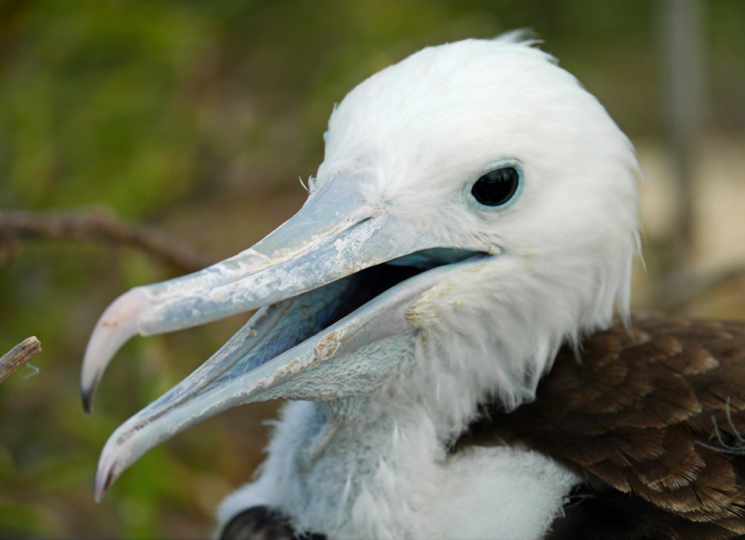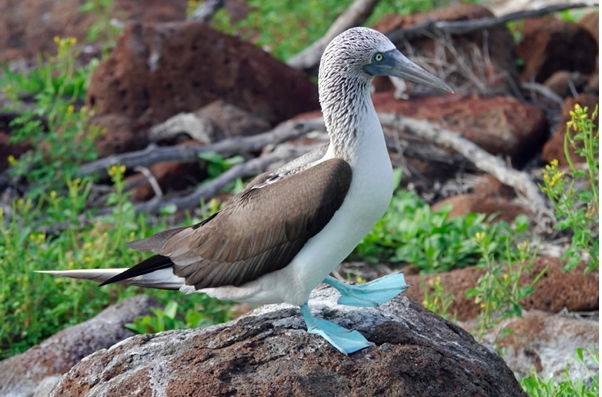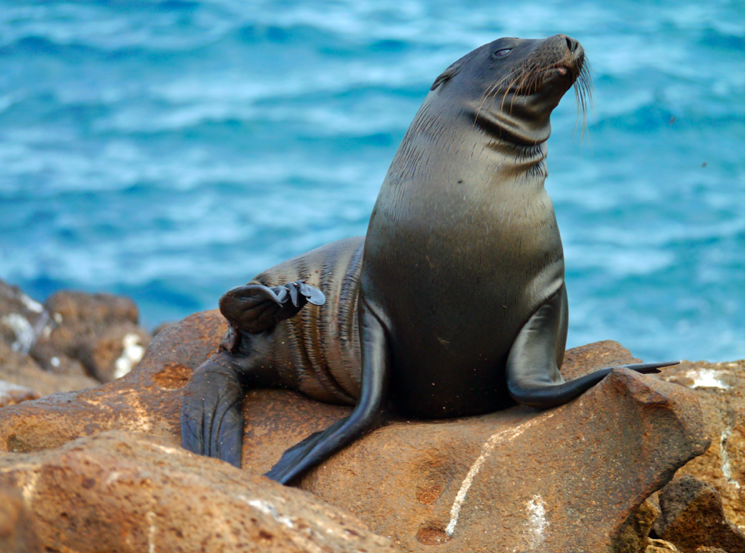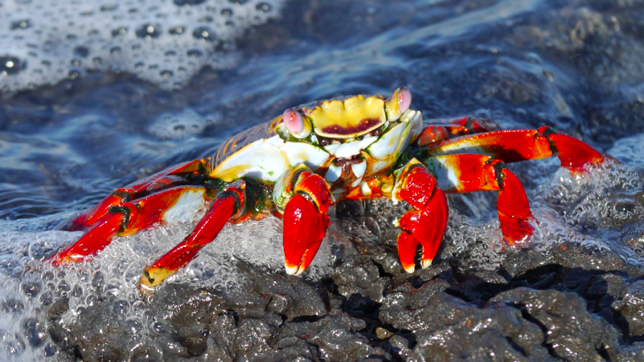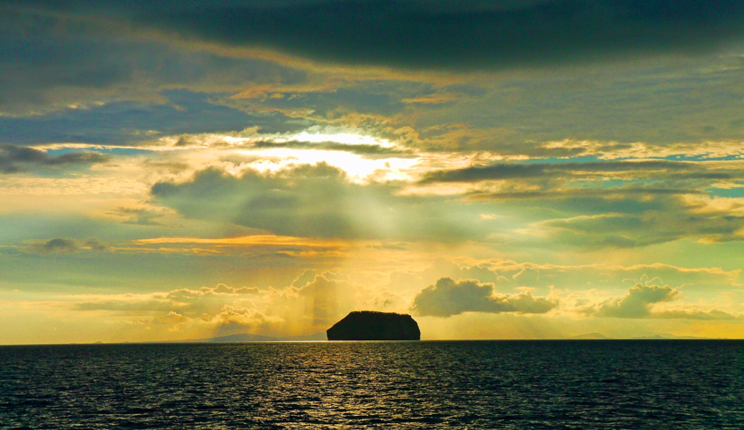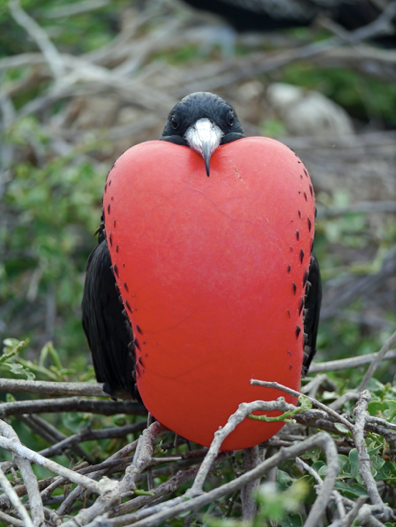In 2015, my wife Debbie and I had the remarkable opportunity to visit the Galapagos Islands. It was like visiting another world. With no natural predators on the islands, wildlife has nothing to fear. On the first day, we walked right up to the nesting ground of the aptly named “magnificent frigatebird.”
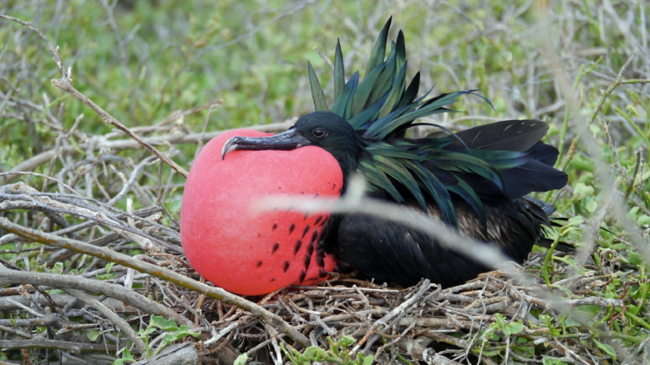
The Galapagos are known for their giant tortoises, which can weigh up to 900 pounds and live over 100 years. Their shell size, shell shape, and neck length has adapted to different habitats over many, many years. Charles Darwin’s observations of the differences between tortoises on adjacent islands contributed to the development of his theory of evolution (along with his observation of finches and various plants and animals).
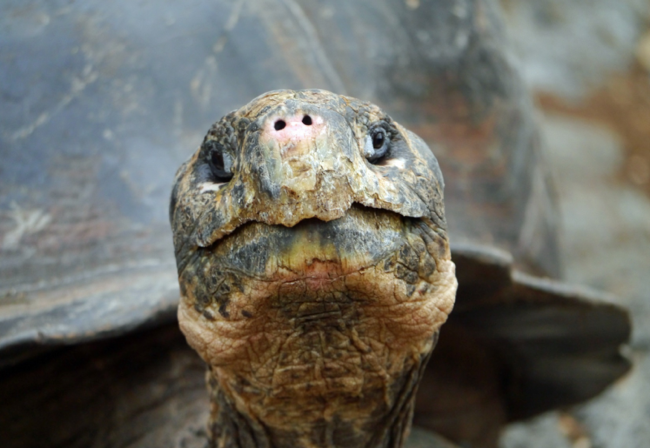
It is estimated that the tortoise population declined from over 250,000 in the 16th century to a low of around 3,000 in the 1970’s. Sailors who landed on the Galapagos captured and killed thousands of tortoises. Later, with the introduction of non-native animals and agriculture to the Galapagos, the tortoise population was further devastated. Only 10 of the original 15 species survive. Fortunately, the tortoise population has now rebounded to about 20,000 through a program of incubation, breeding and repopulation - a great example of how we have adapted our behavior for the good of creation.
Adaptation in a Fast-Changing World
The Galapagos opened a new world to us. Charles Darwin called the islands “a little world within itself.” We took away many nuggets of wisdom. One is the uncanny ability of creation to adapt to its environment to survive. Darwin (possibly erroneously) is credited with the quote:
It is not the strongest of the species that survives, nor the most intelligent that survives. It is the one that is most adaptable to change.
Today, however, the pace of planetary change is overcoming species' ability to keep up. Adaptations that took centuries or millennia in the Galapagos need to occur over decades as our world warms. For instance, flora and fauna dealing with rising temperatures are quickly finding homes further from the equator or at higher elevations, but not all are making it. Due to deforestation, global warming, hunting and other human factors, plants and animals are dying off at an unprecedented, alarming rate. Since 1900, nearly 500 species of animals and 580 species of plants have gone extinct. The extinction rate of seed-bearing plants is roughly 500 times higher than the natural extinction rate. Twenty-seven percent of all species are imminently threatened with extinction.
Some scientists consider the present biodiversity crisis to be more alarming than the threat from climate change itself (though they are certainly intertwined). Many creatures simply cannot adapt fast enough - but it is we humans, who are causing many of these changes, who must adapt the fastest.
How Will We Adapt?
Adapt and change. These are the lessons the Galapagos teach us about how to move forward. The existential threat of climate change presents a huge challenge to adapt and change for the survival of our planet. For all of God’s creatures to survive, we must change – reduce our carbon footprint, implement new sources of clean energy, invent new green technologies, ensure biodiversity.
This may seem overwhelming, but adaptation is not new to us. Any new parent must adapt to survive. My wife, Debbie, and I have had to adapt to a new country and customs when we moved to Costa Rica (16 years), Canada (7 years), and then back to the United States. Immigrants must adapt to new surroundings, learn a new language and culture. Those who thrive are typically the ones who are most adaptable to change.
We have all been adapting to the reality of Covid-19 over the last 2 years. Wearing face masks, social distancing, staying 6 feet apart…or not. Working from home, if possible. Living in isolation or forming a pod. Losing a job, losing a loved one. Waiting for a vaccine... getting a vaccine…and a booster…or not. In the United States, many of us are trying to adapt as we recognize more fully the destructive roles that racism, economic disparity, misogyny, etc. have played and continue to play in our midst. We must adapt as a society and treat all people created in the image of God with dignity and equality.
As a follower of Jesus, I have found my faith adapting as I learn and grow. Jesus lived and preached a message of change: Grace abounds; sins are forgiven; outcasts are loved; the poor are cared for; prisoners are released; the oppressed are set free; mercy, compassion, and justice reign. As I have come to see the mission of Jesus as the beginning of God's new creation, I have expanded my understanding of the gospel and my sense of mission. We need to adapt to the full message of Jesus to renew our lives, our churches, our communities, and our world.
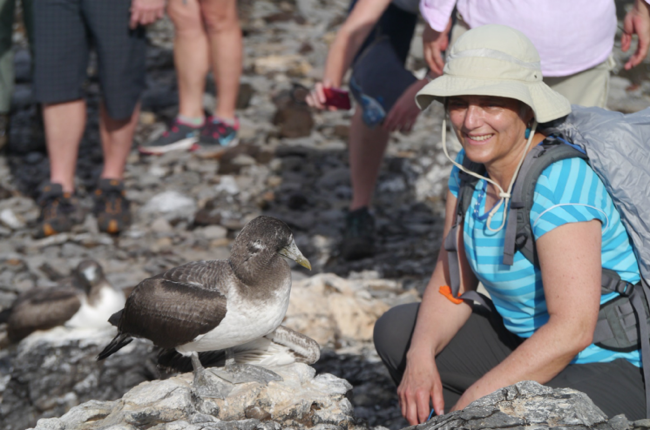
A Final Word
Personally, I am not quick to change. I drag my feet. I get set in my ways. Eventually, I come around. On the other hand, Debbie rearranges the cupboards and pantry every month. She thrives on change. I know that I must be more like her, and continue to adapt and change if I am to be a force that helps preserve and protect God's beautiful creation.
Mac Taylor
Feel free to reach out to me at mactaylor99@gmail.com. You can see a few more of my photos from the trip below.
_______________________________________________________
Mac is not just a world traveller, he's a supporter of The Ecological Disciple through his membership in The Circlewood Stand. Click below to learn more.
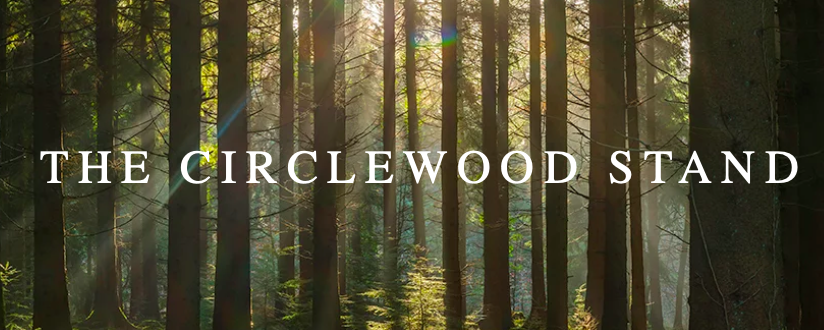
More photos from Mac's trip:
